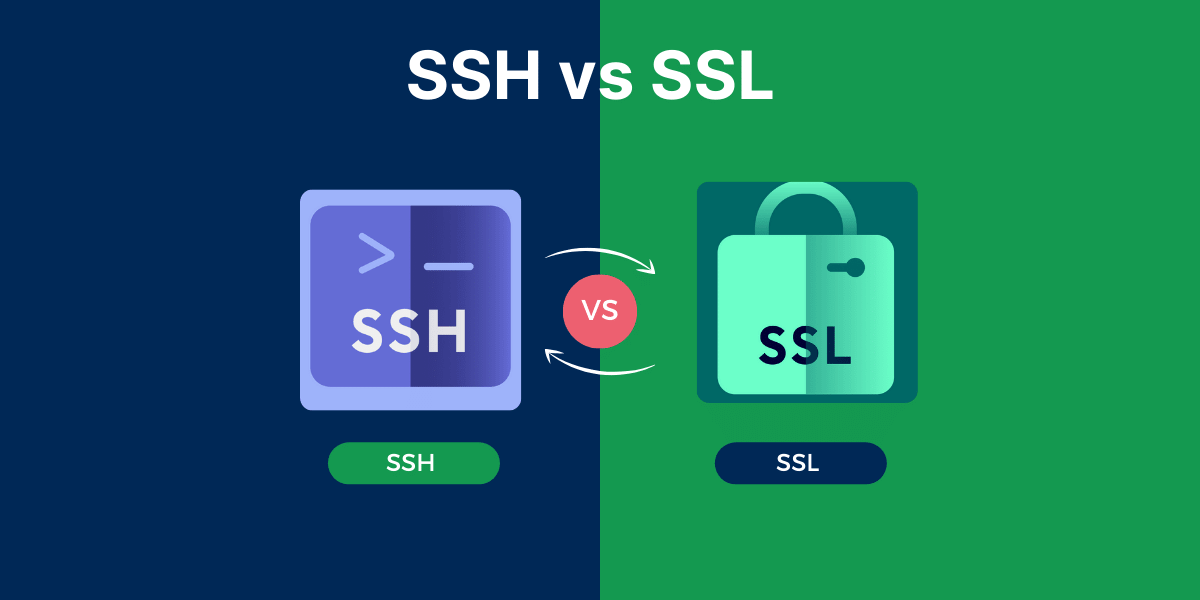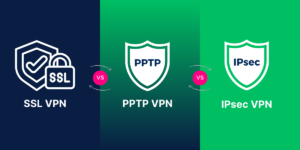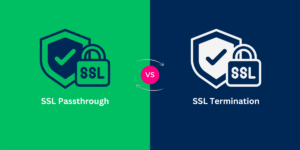Know the Technical Difference Between SSH and SSL
SSH (Secure Shell) and SSL (Secure Sockets Layer) are both cryptographic network protocols used to secure communications over computer networks, but they serve different purposes and work in different ways. This article provides an in-depth look at the key differences between SSH vs SSL from a technical perspective.
SSH and SSL are essential technologies that help protect data in transit over networks. Understanding how they differ is important for anyone working in IT or cybersecurity.
Key Takeaways: SSH vs SSL
- SSH is used to securely log into remote machines and execute commands, while SSL encrypts and authenticates communications between two applications.
- SSH operates at the network layer, providing host-to-host encryption. SSL operates at the transport layer, providing application-to-application encryption.
- SSH uses public-key cryptography for authentication. SSL uses public key infrastructure (PKI) for authentication.
- SSH tunnels can be used to forward ports and encrypt network traffic between clients and servers. SSL tunnels cannot forward ports.
- While both provide secure channels, SSH is designed for remote administration while SSL focuses on keeping data private during transport.
Head-to-Head Comparison between SSH vs SSL
| Feature | SSH | SSL |
|---|---|---|
| Encryption | Strong encryption using cryptographic protocols like AES, Blowfish, 3DES, CAST128, etc. | Strong encryption using TLS/SSL protocols like AES, RC4, 3DES, etc. |
| Port | Default port 22 | Default port 443 for HTTPS, port 465 or 587 for SMTP, etc. |
| Network Layer | Works at transport layer | Works at application layer |
| Authentication | Supports password and public-private key based authentication | Supports certificate based authentication |
| Tunneling Capabilities | Can tunnel through firewalls and NAT | Limited tunneling support |
| Forward Secrecy | Many modes support perfect forward secrecy | Limited forward secrecy support |
| Cost | Free open protocol | Certificate costs from CAs |
| Main Uses | Remote command line access, file transfers, SSH tunneling | Securing web traffic, emails, messaging, VoIP, etc. |
| Client Software | ssh, Putty, Bitvise, OpenSSH, etc. | Web browsers, email clients, chat clients, etc. |
| Server Software | OpenSSH, Dropbear, Bitvise, etc. | Apache, IIS, Exchange, etc. |
| Speed | Slower than plain text protocols | Faster than SSH due to less encryption overhead |
| Complexity | More complex to set up and manage keys | Simpler to implement for basic use cases |
What is SSH?
SSH stands for Secure Shell. It is a cryptographic protocol that provides secure remote access to network services over an unsecured network.
The most common use of SSH is to securely log into remote Linux or Unix servers and run commands through a shell prompt. SSH allows administrators, developers, and others to access computing resources remotely through command-line interfaces.
From a technical perspective, SSH consists of two main components:
- SSH Daemon (sshd) – This server component runs on the remote host and listens for incoming SSH connections on TCP port 22 by default.
- SSH Client (ssh) – This client component runs on the local user’s machine and allows the user to connect to the remote SSH server. Popular SSH clients include PuTTY and OpenSSH.
The Primary Functions of SSH
- Authentication – SSH uses asymmetric cryptography to authenticate the remote server and, optionally, the client user. This ensures connections are established with trusted parties.
- Encryption – All data flowing over the SSH connection is encrypted using symmetric encryption algorithms like AES, protecting confidentiality.
- Data integrity – Hashing algorithms are used to detect any manipulation or corruption of data being transmitted.
- Compression – SSH can optionally compress traffic to reduce bandwidth usage.
What is SSL?
SSL stands for Secure Sockets Layer. It is a security protocol that encrypts communications between a client and server to ensure sensitive information remains private as it travels over a network.
Unlike SSH, SSL is not used for remote shell access. Rather, it is used to secure many common internet services and communications:
- HTTPS – HTTP websites secured using SSL certificates use the https:// protocol. This includes ecommerce sites, banking portals, webmail, and more.
- Email – SSL can encrypt protocols like POP3, IMAP, and SMTP to protect email contents during transit.
- VPNs – Virtual private network connections that allow remote access to private networks are secured with SSL.
- Databases – Database management systems like MySQL and MongoDB support SSL-encrypted client connections.
The SSL protocol runs above TCP and below application protocols like HTTP. It uses TCP port 443 by default. It works by establishing an encrypted link, known as an SSL session, between a server and client.
With SSL, the server always authenticates itself to the client, but the client only optionally authenticates itself to the server. This is a key difference from SSH, which requires mutual authentication.
The SSL Session Process includes Three Core Phases
- Handshake– The client and server negotiate the parameters of the SSL session, including the encryption algorithms to be used.
- Key Exchange– The server’s public key is provided to the client so data can be securely exchanged.
- Data Transfer– Application data is symmetrically encrypted and transferred over the SSL session.
Similarities Between SSH and SSL
While SSH and SSL serve different primary purposes, they share some similar characteristics:
- Encrypted channels – Both SSH and SSL create encrypted channels between endpoints that protect the confidentiality and integrity of data in transit over untrusted networks.
- Authentication – SSH and SSL both authenticate the identity of endpoints through public-private key pairs and PKI. This verifies you are communicating with who you intended.
- Tunneling capabilities – SSH can forward arbitrary TCP ports and tunnel IP traffic through its encrypted channel. SSL tunnels provide similar VPN capabilities.
- Resilient protocols – SSH and SSL both continue to evolve with new versions and editions to address security vulnerabilities. They provide reliable, secure transport.
- Complementary security – SSH and SSL are often used together to provide end-to-end security. For example, SSL to access a web server and SSH to administer it.
Key Differences Between SSH vs SSL
Now that we’ve covered the basics of SSH and SSL, let’s outline some of the key technical differences between these two cryptographic network protocols:
Encryption
- SSH uses end-to-end bidirectional encryption between client and server. All traffic in both directions is encrypted.
- SSL uses unidirectional encryption between client and server. Only server-to-client traffic is encrypted.
Authentication
- SSH uses host-based authentication where the server’s host key fingerprint is checked by the client for trusted verification.
- SSL uses certificate-based authentication where the server presents a digital certificate issued and validated by a trusted certificate authority.
Sessions
- SSH establishes persistent sessions that remain open like a tunnel for ongoing data transfer.
- SSL establishes short-lived sessions that are created on demand and closed after each request-response transaction.
Ports and Protocols
- SSH uses TCP port 22 by default and works at the application layer.
- SSL typically uses TCP port 443 and works at the transport layer to encrypt application layer protocols running over TCP.
Tunneling
- SSH can tunnel other protocols through an SSH connection for security, like SSH port forwarding.
- SSL sits below application protocols and cannot tunnel other protocols.
Visibility
- SSH provides full visibility into commands, output, errors etc. as an interactive remote shell session.
- SSL operates transparently below the application layer with no visibility into requests and responses.
Common Uses
- SSH is most commonly used for remote command line access, file transfer, and tunneling.
- SSL is most commonly used for securing web (HTTPS), email, VPNs, databases, and other TCP communications.
These are some of the core technical differences that separate the SSH and SSL protocols and the roles they serve. Understanding these distinctions is helpful for leveraging these technologies effectively.
How SSH and SSL Work Together
While SSH and SSL serve different purposes, they are complementary technologies that are frequently used together to provide end-to-end security.
Some examples of SSH and SSL working together:
Accessing A Web Server Over SSH Using Port Forwarding to Tunnel The HTTPS Traffic
- The SSH connection provides secure remote shell access to the server.
- The tunneled SSL connection secures the HTTPS traffic sent over the SSH tunnel.
Sending Email Using Encrypted SMTP Over an SSH Connection for Security
- The SSH connection enables secure access to the mail server.
- The SSL-encrypted SMTP session protects the email content.
Connecting To a Mongodb Database Server Over SSH And Enabling SSL For the Database Connections
- SSH allows remote administrative access to the MongoDB server.
- SSL encrypts communication between MongoDB clients and the database over the network.
Using SSH and SSL together provides a defense-in-depth approach with encryption at multiple levels when accessing services remotely over a network.
Key Algorithms and Technologies
Under the hood, SSH and SSL make use of various cryptographic algorithms, protocols, keys, and certificates to implement secure communication channels:
Symmetric Encryption
Symmetric algorithms are used to encrypt bulk data in both SSH and SSL:
- SSH – AES, Blowfish, 3DES
- SSL – RC4, AES, 3DES
Asymmetric Encryption
Asymmetric public key algorithms are used for key exchange and authentication:
- SSH – RSA, DSA, ECDSA, EdDSA
- SSL – RSA, DSA, Diffie-Hellman
Hashing
Hash functions provide data integrity verification:
- SSH – SHA1, SHA2, MD5
- SSL – SHA1, SHA2, MD5
Host Keys vs Certificates
- SSH relies on host keys like RSA or ED25519 to authenticate servers.
- SSL relies on PKI infrastructure with digital certificates issued by certificate authorities.
SSH Use Cases
Let’s explore some of the most common use cases where the SSH protocol excels:
Remote Server Access
The primary use case for SSH is providing administrators and developers secure remote access to servers like Linux, UNIX, or Windows machines. This allows securely running shell commands and accessing resources as if logged in locally.
SSH is the go-to technology for server management, configuration, log monitoring, file transfers, and automation. SSH keys provide easy authentication and single sign-on access to remote servers.
File Transfers
Secure file transfer functionality is built into SSH through utilities like SCP (Secure Copy) and SFTP (SSH File Transfer Protocol). This allows transferring files or entire directories between hosts over an encrypted SSH connection.
SCP and SFTP provide important alternatives to unsecured protocols like FTP for exchanging sensitive data between systems.
Tunneling and Port Forwarding
SSH also supports tunneling where other protocols can be tunneled through an SSH connection to gain security and encryption. Port forwarding is a common example, allowing services on remote hosts to be accessed securely over SSH.
Tunneling provides the flexibility to proxy application traffic like websites, remote desktops, or email through an encrypted SSH pipe between the client and server.
Automation
SSH enables secure automation of tasks on remote computing resources. Combining SSH with automation tools like Ansible, Chef, and Puppet allows streamlined provisioning, configuration management, and orchestration through scripting.
SSH-based automation is critical for cloud computing and infrastructure-as-code (IaC) initiatives.
Network Device Access
SSH serves as a secure management protocol for networking hardware like routers, switches, firewalls, and load balancers from vendors like Cisco, Juniper, Arista, and others. This provides an encrypted alternative to insecure protocols like Telnet.
SSL Use Cases
Next, we’ll look at some of the most common use cases where SSL provides critical security:
Web Browsing
The ubiquitous HTTPS protocol secures billions of web transactions a day across ecommerce sites, banks, web-based email, and more. SSL provides encrypted channels between browsers and web servers, protecting sensitive user information.
SSL secures email at rest and in transit through protocols like SMTPS, POP3S, and IMAPS. This encrypts email contents and user credentials as messages move between mail servers and clients.
Virtual Private Networks
VPNs allow remote users to securely access private organizational networks and resources over the public internet. VPNs tunnel traffic and use SSL to encrypt connections between endpoints.
Database Access
Major databases like Oracle, SQL Server, MySQL, PostgreSQL, and MongoDB all support SSL-encrypted client connections. This protects sensitive data queried and stored in databases accessed over a network.
Application Connections
Many networked applications use SSL to secure communications. APIs, mobile apps, VOIP services, messaging platforms, and client-server software can all leverage SSL for encryption.
This covers some of the major use cases where leveraging SSL for transport layer security is critical.
Choosing SSH vs. SSL
So when should you choose SSH vs SSL? Here are some general guidelines:
- Use SSH when you need to directly log into and control remote systems through a command shell.
- Use SSH for automated system administration tasks, file transfers, and tunneling other protocols.
- Use SSL when you need to secure a TCP-based application protocol like HTTP, SMTP, POP3, IMAP, databases, etc.
- Use SSL to encrypt web browsing, email, VPN connections, and application network traffic.
- Use both together to get end-to-end encryption from the client to the remote resource accessed over a network.
Conclusion on SSH vs SSL
In summary, SSH and SSL are critical cryptographic protocols that make modern computing infrastructure secure. SSH enables encrypted remote access while SSL protects application data in transit. Using them together provides end-to-end security for client-server connections over untrusted networks. Understanding the technical differences between SSH and SSL helps utilize them most effectively.
Frequently Asked Questions About SSH vs SSL
Is SSH the same as SSL?
No, SSH and SSL are distinct protocols that serve different security purposes. SSH secures remote command-line sessions while SSL encrypts general TCP traffic for applications.
Is SSH or SSL more secure?
Neither protocol is inherently more secure. SSH provides bidirectional encryption while SSL only encrypts in one direction. They both integrate similar cryptographic protections like encryption and hashing. Which is more secure depends on the specific use case and implementation.
Does SSH use SSL?
SSH does not directly use or depend on SSL, but they can be used together. For example, using SSH port forwarding to tunnel SSL-encrypted web traffic, or accessing an SSL-secured database over an SSH connection.
Can you tunnel SSL through SSH?
Yes, SSH port forwarding can tunnel traffic from protocols like HTTPS (SSL) through an SSH connection for added security. The SSH connection protects the tunnel while SSL encrypts the tunneled application traffic.
Does SSH use port 22 and SSL use port 443?
By convention, SSH typically uses TCP port 22 and SSL typically uses TCP port 443. However, both protocols can be configured to use other ports if required.
Is SSH slower than SSL?
SSL has less overhead than SSH so it is generally faster, especially for shorter lived connections. However, the performance difference is typically not noticeable for most applications.
Is SSH client-server or peer-to-peer?
SSH operates on a client-server model with an SSH client connecting to an SSH daemon on the remote server machine. It does not operate as a peer-to-peer protocol between endpoints.
Can you use SSH without encryption?
Most SSH implementations support running the protocol without encryption, but this is highly discouraged as it eliminates the core security protections. Using SSH without encryption exposes the connection to eavesdropping and man-in-the-middle attacks.
Stay Secure with SSLInsights!
Subscribe to get the latest insights on SSL security, website protection tips, and exclusive updates.
✅ Expert SSL guides
✅ Security alerts & updates
✅ Exclusive offers



